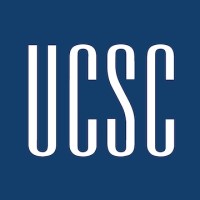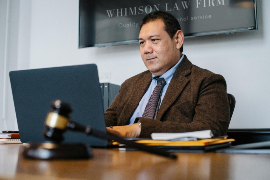Bachelor of Arts in Community Studies (Bachelors)
UC Santa Cruz
Santa Cruz, CA
Founded in 1969, community studies is the oldest interdisciplinary academic program at UC Santa Cruz. The hallmarks of community studies are its focus on social justice and its distinctive pedagogy integrating classroom learning and extended field study. Community studies was a national pioneer in experiential education and its curricular model has been emulated widely. Community studies also was a pioneer in addressing principles of social justice, specifically inequities arising from race, class and gender dynamics in society, and in critically assessing social change strategies.
The undergraduate major offers highly motivated and focused students the opportunity to pursue a rigorous course of study combining on- and off-campus learning. On campus, students complete a core curriculum examining the histories and contemporary dynamics of social justice movements, the nonprofit sector, public policy, and social enterprise. The core curriculum works in tandem with topical coursework that develops social science knowledge related to the program's twin emphases of economic justice and health equity. Off campus, students spend six months on field study participating in the work of an organization, contributing to its mission and developing a critical analysis of its wider field of social action. Students work independently but with guidance from both campus faculty and an on-site supervisor from the field study organization.
The undergraduate core curriculum begins with the development of skills in social analysis and field observation/participation while deepening students’ knowledge of specific histories and theoretical perspectives essential to the study of communities and social transformation. Next, through the six-month full-time field study, students engage with specific communities through immersion and participation in an organization pursuing a social justice mission. This intensive and extended field study experience is a distinguishing feature of the community studies major. Finally, students return to campus to analyze their field study experience and its relation to their classroom-based learning. The major culminates with an original senior capstone integrating academic coursework with field study experience and analysis.
With the guidance of faculty and staff advisers, community studies students choose field placements related to the program’s areas of focus in health equity and economic justice. In the past, placements have been arranged with community health clinics, women’s and feminist organizations, immigrant rights centers, media advocacy organizations, homeless resource and support groups, sustainable development projects, queer and transgender organizations, neighborhood or workers’ collectives, civil rights groups, community food security programs, legal clinics, community-based cultural organizations, programs for seniors, tenant or labor unions, tenant organizing projects, HIV/AIDS advocacy groups, housing rights advocates, harm-reduction programs, government agencies and the offices of elected officials, and still other organizations committed to and working for social good. As political, economic, cultural and technological landscapes shift, so do the needs and opportunities for social justice organizing. Community studies is attuned to how social transformations generate new opportunities for field study learning. Students graduate from community studies having engaged with a dynamic world through a unique mix of traditional pedagogy and direct experience.
Program Learning Outcomes
Community studies identifies eight Program Learning Outcomes (PLOs) that capture exciting cross currents within the major. The PLOs combine classroom and experiential learning related to the social justice domains of health equity and economic justice. They also enumerate expectations for student achievement in social science research and writing and communication skills within a diverse society.
Critical Thinking
Students earning a B.A. in community studies will be able to:
✔ Demonstrate deep knowledge of the history, causes, and contemporary manifestations of specific social justice issues related to health and economic inequality;
✔ Deconstruct institutional power residing in private enterprise, government, the media, and/or the non-‐profit sector;
✔ Analyze how communities attempt to overcome problems associated with inequality, cultural stigma, prejudice, and discrimination;
✔ Articulate research questions, methods, and findings appropriate to social science inquiry; and
✔ Demonstrate analytical writing ability that effectively integrates theoretical and experiential knowledge about social justice.
Community Engagement
Students earning a B.A. in community studies will be able to:
✔ Identify, analyze, and help to construct strategies for social change through participation in the social justice work of an organization;
✔ Exhibit ethnographic observation skills by maintaining a regular record of detailed field notes;
✔ Demonstrate effective communication with the diverse constituencies involved in social justice work.














